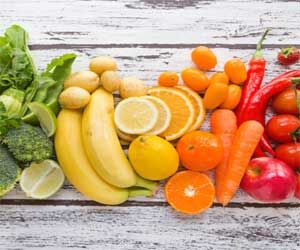- Home
- Medical news & Guidelines
- Anesthesiology
- Cardiology and CTVS
- Critical Care
- Dentistry
- Dermatology
- Diabetes and Endocrinology
- ENT
- Gastroenterology
- Medicine
- Nephrology
- Neurology
- Obstretics-Gynaecology
- Oncology
- Ophthalmology
- Orthopaedics
- Pediatrics-Neonatology
- Psychiatry
- Pulmonology
- Radiology
- Surgery
- Urology
- Laboratory Medicine
- Diet
- Nursing
- Paramedical
- Physiotherapy
- Health news
- Fact Check
- Bone Health Fact Check
- Brain Health Fact Check
- Cancer Related Fact Check
- Child Care Fact Check
- Dental and oral health fact check
- Diabetes and metabolic health fact check
- Diet and Nutrition Fact Check
- Eye and ENT Care Fact Check
- Fitness fact check
- Gut health fact check
- Heart health fact check
- Kidney health fact check
- Medical education fact check
- Men's health fact check
- Respiratory fact check
- Skin and hair care fact check
- Vaccine and Immunization fact check
- Women's health fact check
- AYUSH
- State News
- Andaman and Nicobar Islands
- Andhra Pradesh
- Arunachal Pradesh
- Assam
- Bihar
- Chandigarh
- Chattisgarh
- Dadra and Nagar Haveli
- Daman and Diu
- Delhi
- Goa
- Gujarat
- Haryana
- Himachal Pradesh
- Jammu & Kashmir
- Jharkhand
- Karnataka
- Kerala
- Ladakh
- Lakshadweep
- Madhya Pradesh
- Maharashtra
- Manipur
- Meghalaya
- Mizoram
- Nagaland
- Odisha
- Puducherry
- Punjab
- Rajasthan
- Sikkim
- Tamil Nadu
- Telangana
- Tripura
- Uttar Pradesh
- Uttrakhand
- West Bengal
- Medical Education
- Industry
Consumption of fruits, vegetables and exercising increases happiness quotient

New research led by the University of Kent and University of Reading has found that fruit and vegetable consumption and exercise can increase levels of happiness.
While the link between lifestyle and wellbeing has been previously documented and often used in public health campaigns to encourage healthier diets and exercise, new findings published by the Journal of Happiness Studies show that there is also a positive causation from lifestyle to life satisfaction.
This research is the first of its kind to unravel the causation of how happiness, the consumption of fruit and vegetables and exercising are related, rather than generalising a correlation. The researchers, Dr Adelina Gschwandtner (University of Kent's School of Economics), Dr Sarah Jewell and Professor Uma Kambhampati (both from the University of Reading's School of Economics), used an instrumental variable approach to filter out any effect from happiness to lifestyle. It showed that it is rather the consumption of fruit and vegetables and exercising that makes people happy and not the other way round.
Findings demonstrate that the ability of individuals to delay gratification and apply self-control plays a major role in influencing lifestyle decisions, which in turn has a positive impact on wellbeing. The research also shows that men appear to exercise more, and women eat more fruit and vegetables.
With it being well known that lifestyle diseases are a leading cause of ill health and mortality worldwide, and the UK having one of the highest obesity rates in Europe, these findings could have significant implications for public health policy.
Dr Gschwandtner said: 'Behavioural nudges that help the planning self to reinforce long-term objectives are likely to be especially helpful in maintaining a healthy lifestyle. If a better lifestyle not only makes us healthier but also happier, then it is a clear win-win situation.'
Professor Kambhampati said: 'There has been a bigger shift in recent years for healthier lifestyle choices. To establish that eating more fruit and vegetables and exercising can increase happiness as well as offer health benefits is a major development. This may also prove useful for policy campaigns around environment and sustainability.'
https://link.springer.com/article/10.1007/s10902-021-00440-y
Hina Zahid Joined Medical Dialogue in 2017 with a passion to work as a Reporter. She coordinates with various national and international journals and association and covers all the stories related to Medical guidelines, Medical Journals, rare medical surgeries as well as all the updates in the medical field. Email: editorial@medicaldialogues.in. Contact no. 011-43720751
Dr Kamal Kant Kohli-MBBS, DTCD- a chest specialist with more than 30 years of practice and a flair for writing clinical articles, Dr Kamal Kant Kohli joined Medical Dialogues as a Chief Editor of Medical News. Besides writing articles, as an editor, he proofreads and verifies all the medical content published on Medical Dialogues including those coming from journals, studies,medical conferences,guidelines etc. Email: drkohli@medicaldialogues.in. Contact no. 011-43720751


